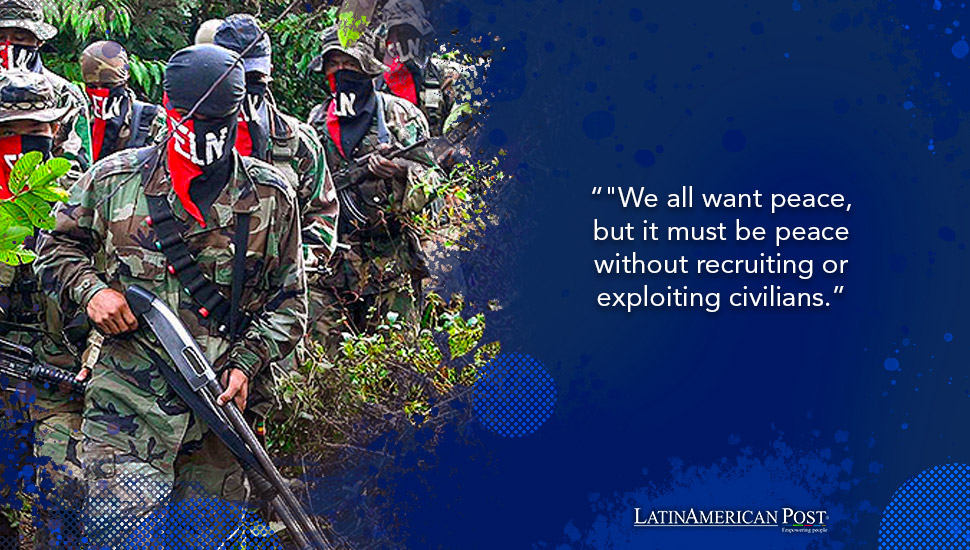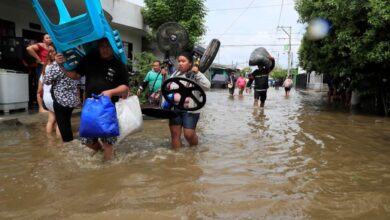Military Action Needed as Colombia as Illegal Gropus Gain Territory During Peace Talks

The ongoing peace process in Colombia has paradoxically empowered illegal groups, necessitating a more robust military response to reclaim territory and protect civilians. Governor Rafaela Cortés of the Meta department calls for enhanced regional dialogue backed by military might.
Rafaela Cortés, the governor of the Colombian department of Meta, has been in office for just seven months, yet she feels the urgent pressure of a deteriorating security situation. “We are losing more territory every day,” she laments, highlighting the growing strength of FARC dissidents. Cortés has called on the national government to initiate a regional peace dialogue with these groups but also underscores the need for a more robust military response to regain control and protect civilians.
Since October 16, when the EMC, a faction of the FARC, began peace negotiations with the central government, the group has split into two factions. One, led by ‘Iván Mordisco,’ has exited the talks, while a minor faction, still negotiating, is led by ‘Calarcá,’ who operates in Meta. These divisions have led to clashes in regions like Meta, turning civilian areas into battlegrounds. Cortés describes a dire situation where civilians are caught between warring factions demanding extortion payments.
“This situation is set to cause another wave of displacement,” Cortés warns, referring to a department already scarred by past conflicts involving FARC and paramilitary groups like the AUC. Meta, once a hopeful symbol of the peace accord signed in 2016, now faces a resurgence of violence and insecurity.
Ghost Towns and Growing Threats
The escalation of violence has turned several municipalities into ghost towns. Armed groups finance their operations through extortion and the recruitment of minors. The governor reports that these illegal factions are becoming stronger and more entrenched. Recently, the army arrested two minors involved in extortion activities in Meta, and authorities have identified others being used to distribute threatening leaflets and messages via social media and WhatsApp.
Cortés has long advocated for regional dialogues involving local governors and mayors, believing local leaders are best positioned to negotiate peace in their regions. “What governor or mayor doesn’t want peace?” she asks. “We all want peace, but it must be peace without recruiting or exploiting civilians.”
Disconnect with the National Government
The situation in Antioquia last week underscores the challenges faced by local leaders. A convoy carrying ‘Calarcá’ and other FARC dissidents, who had outstanding arrest warrants, was intercepted by the army. The fact that these individuals were being protected by official vehicles while local mayors in Meta lacked adequate security measures highlights a troubling disconnect between the national government and regional authorities.
“This was a severe blow for us,” says Cortés. “Our mayors, who are under threat, don’t have the same protection.” She criticizes the national government for lacking support and calls for better coordination and more robust military protection for local leaders.
Despite meeting with President Gustavo Petro twice since taking office in January, Cortés feels that regional concerns are not adequately addressed. She believes the president should leverage the knowledge and willingness of regional governors to implement adequate security measures. “The president is the leader of all Colombians. We governors want to be closer to him and work together more effectively,” she asserts.
The Case for a Stronger Military Presence
Initially seen as a beacon of hope, the peace process has inadvertently strengthened illegal groups. As these factions grow bolder, the need for a more robust military response becomes evident. The national government must prioritize reclaiming territory and protecting civilians. This requires not just dialogue but also decisive military action to dismantle illegal groups and restore order.
Latin America has witnessed similar challenges. In countries like Mexico and Brazil, criminal organizations have exploited peace processes and weak governance to expand their influence. Colombia must learn from these examples and adopt a more balanced approach, combining peace efforts with a robust military strategy.
The case of Meta highlights the urgent need for more robust military intervention. While regional dialogues are crucial, they must be backed by a firm commitment to security. The national government should provide local leaders with the necessary resources and support to effectively govern and protect their communities.
A Call to Action
Governor Cortés’s plea for more military support is not just about security; it’s about reclaiming the hope and progress achieved through the peace accord. The national government must recognize the gravity of the situation and act decisively to prevent further deterioration. This includes deploying additional troops to conflict zones, increasing intelligence efforts, and providing comprehensive support to local authorities.
Colombia’s experience reflects a broader Latin American context where peace processes often face significant challenges. The region’s history of conflict and violence underscores the need for a multifaceted approach that addresses the root causes of unrest and the immediate security needs of the population.
Strengthening the military’s role in securing peace does not mean abandoning dialogue. Instead, it involves creating a secure environment where meaningful negotiations occur. The government can pave the way for a more sustainable peace process by ensuring that illegal groups cannot operate with impunity.
The current situation in Meta is a stark reminder that peace is fragile and must be actively defended. The national government must heed the calls of regional leaders like Governor Cortés and prioritize a more robust military presence to protect civilians and reclaim territories lost to illegal groups.
The lessons from other Latin American countries highlight the importance of balancing peace efforts with robust security measures. Colombia has made significant strides since the 2016 peace accord, but the resurgence of violence threatens to undo this progress. Colombia can build a more secure and stable future by strengthening the military’s role and enhancing support for local authorities.
Also read: Drug Trade Perpetually Undermines Colombia’s Quest for Peace
Ultimately, the goal is to create a Colombia where peace is a temporary respite and a lasting reality. This requires a comprehensive strategy that addresses immediate security threats and long-term socio-economic challenges. By working together, the national and regional governments can ensure that the benefits of peace extend to all Colombians, creating a more inclusive and prosperous society.




